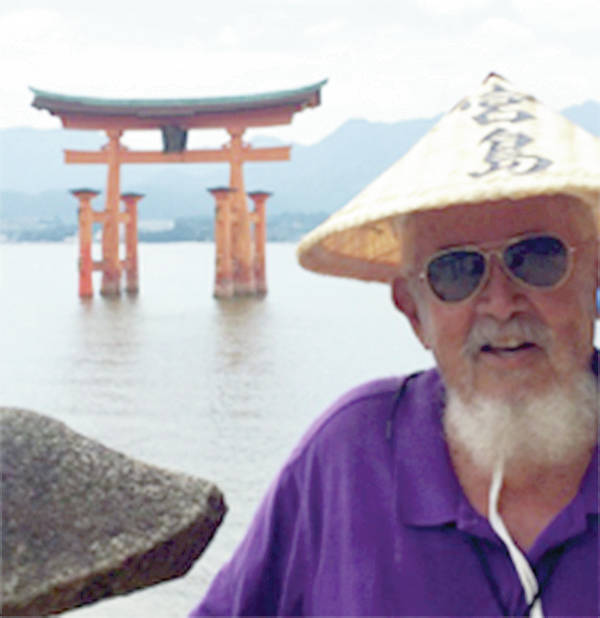As a recent convert to Buddhism, I have attempted to learn about the culture and practices of my new way of life. One of the fascinating things I discovered is the way Japanese culture honors our departed. Let me share what I have learned about “Bon Odori” (Bon Dance).
Bon Odori is the custom of honoring the spirits of ancestors and is held in the summer. It is a time when the spirits of our ancestor’s re-visit us. This festival has been around for more than 500 years. It’s an important part of our life and culture that crosses ethnic lines and is the annual festival to honor our departed.
Initially brought from Japan by plantation workers, bon dances are held on all major islands (Kauai, Oahu, Molokai, Maui and Hawaii) and is part of the fabric of Japanese-American life in Hawaii, the Mainland and other places around the world where Japanese have migrated.
No one really knows how this practice began, but legend tells us that the bon dance originated with one of Buddha’s closest disciples. His name was Mogallana. Mogallana was said to have extraordinary extra-sensory powers of perception. He was very distressed by his vision of the suffering of his deceased mother and sought Buddha’s advice on how to end his mother’s suffering.
Buddha instructed Mogallana to make offerings of food and water to the many Buddhist monks who had just completed their summer retreat. He did this and witnessed the end of his mother’s suffering. He also saw the true nature of her selflessness, kindness and the many sacrifices she made for him. He was so happy; he sang and danced with joy. Thus, the festival to celebrate, remember and show appreciation for our ancestors’ sacrifices is attributed to Mogallana’s demonstrative happiness.
The style of bon dancing varies from place to place. Dancers usually move in unison in a circle around a high wooden scaffold (yagura) where the musicians and singers perform. In some places the people dance through village streets. They wear light, colorful, festive cotton happi coats because of summer heat.
Their movements depict the regions specialty, e.g., a coal mining town’s dancers mimic digging, cart pushing and lantern hanging; a fishing town would involve motions depicting casting and retrieving nets.
Many events are held during Obon Season. “Toro Nagashi” (lantern floating) is another very popular and highly publicized event. “Toro” means lantern and “Nagashi” means to cruise or flow. It’s a Japanese ceremony during which participants float paper lanterns with written messages and prayers down a river or out to sea.
This event is held at the close of the Obon Season to help guide the spirits of the departed back to their spirit world. It’s also done at other times.
In Hawaii, around Memorial Day (May 28), “Lantern Floating Hawaii” brings together 50,000 people on Ala Moana Beach to experience personal and collective moments of remembrance, reflection and to offer gratitude to their departed relatives. These folks are surrounded by love, understanding, support and sharing common values. This year about 7,000 lanterns will float in the waters of Ala Moana Beach.
Obon is similar to Memorial Day, another time and way we remember and honor our departed, especially those who have fallen in service to our country. As in the traditional practice of Obon, we clean and decorate grave sites with flowers and flags.
Later in the year, on Kauai, Veterans Day (Nov. 11), members of the Kauai United Buddhist Association, an islandwide group of 30 or 40 Buddhist women and men, participate in the “Lonesome Grave” project. They clean and decorate the Hanapepe Veteran’s Cemetery graves with flowers. Boy and girl scouts decorate them with flags. This is followed by the Kauai Veterans Council’s solemn and passionate ceremony, attended by veterans and others, honoring our fallen service men and women.
Although we all celebrate and honor our departed in different ways and at different times, there is a commonality – we pay respect and show gratitude toward our departed for their contributions and sacrifices.
Please come and participate in one or more of the Bon Dances which will be held on Kauai this year. Each night will offer you food, fun and a way to honor your departed.
The 2018 Kauai bon dance schedule is as follows:
June 8-9, Kapaa Jodo Mission
June 15-16, West Kauai Hongwanji Mission (Hanapepe)
June 22-23, Lihue Hongwanji Mission
June 29-30, Waimea Shinon Mission
July 6-7, Koloa Jodo Mission
July 13-14, West Kauai Hongwanji Mission (Waimea)
July 20-21, Kapaa Hongwanji Mission
July 27-28, Waimea Higashi Hongwanji Mission
July 3-4, Kauai Soto Zen Temple


